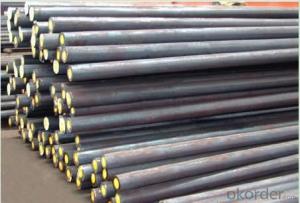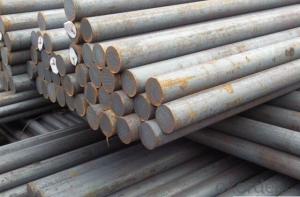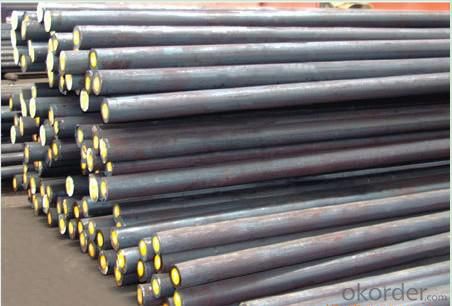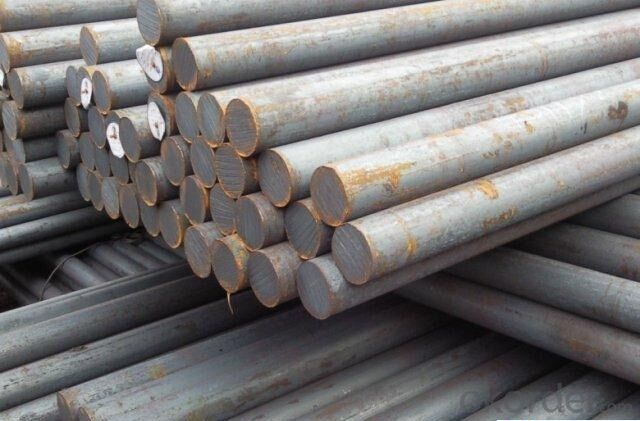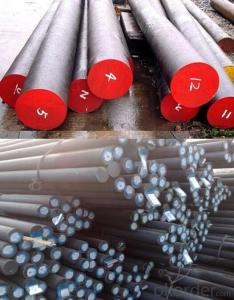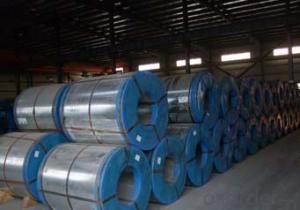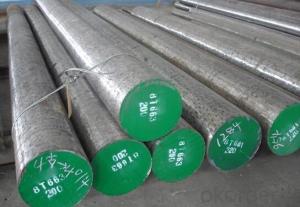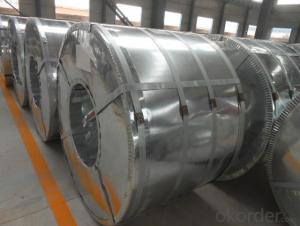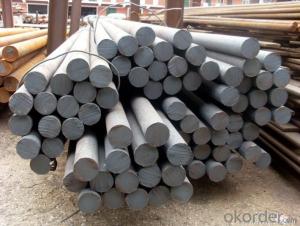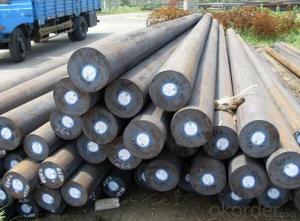Grade SAE 4340 Alloy Steel Price List Hot Rolled
- Loading Port:
- Tianjin
- Payment Terms:
- TT OR LC
- Min Order Qty:
- 3 m.t.
- Supply Capability:
- 10000 m.t./month
OKorder Service Pledge
OKorder Financial Service
You Might Also Like
Specification
Product Description:
Round bar | |||||||
Dia:16mm~700mm | Length:2m~6m | ||||||
Flat bar | |||||||
Thickness:20mm~500mm | Length:2m~12m | ||||||
Dimensions can be customized | |||||||
OKorder is offering Grade SAE 4340 carbon steel at great prices with worldwide shipping. Our supplier is a world-class manufacturer of steel, with our products utilized the world over. OKorder annually supplies products to European, North American and Asian markets. We provide quotations within 24 hours of receiving an inquiry and guarantee competitive prices.
Product Applications:
Grade SAE4340 carbon steels are ideal for structural applications and are widely used in the construction of buildings and bridges, and the manufacturing, petrochemical, and transportation industries.
Product Advantages:
OKorder's Grade SAE51200/ GCr15 / 100cr6 Bearing Steel are durable, strong, and resist corrosion.
Chemical Composition:
Comparative standard | Grade | C | Si | Mn | Cr | Mo | P | S | Ni |
GB | 40CrNiMoA | 0.36-0.44 | 0.10-0.350 | 0.45-0.70 | 1.10-1.40 | 0.20-0.35 | 0.03 | 0.02 | 1.30-1.7 |
AISI | 4337/4340 |
|
|
|
|
|
|
|
|
JIS | SNCM8 |
|
|
|
|
|
|
|
|
DIN | 34CrNiMo6/1.6582 | 0.34 | max 0.40 | 0.65 | 1.5 | 0.23 | 0.03 | 0.03 | 1.5 |
Packaging & Delivery of Carbon Steel
Standard seaworthy packing or as customer required
Delivery time:
Within 30 days after order is confirmed.
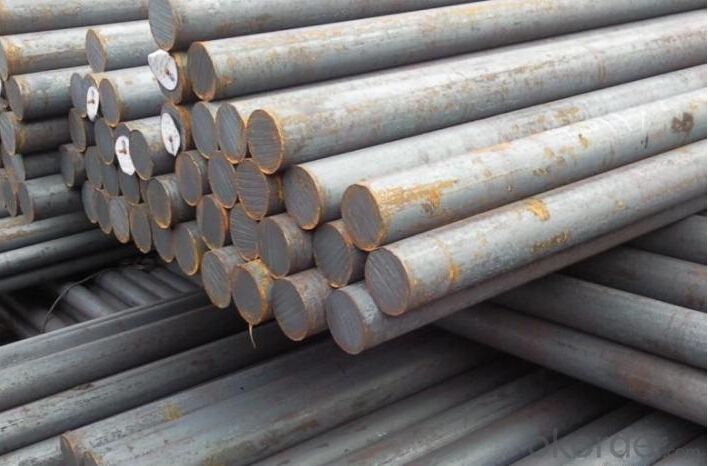
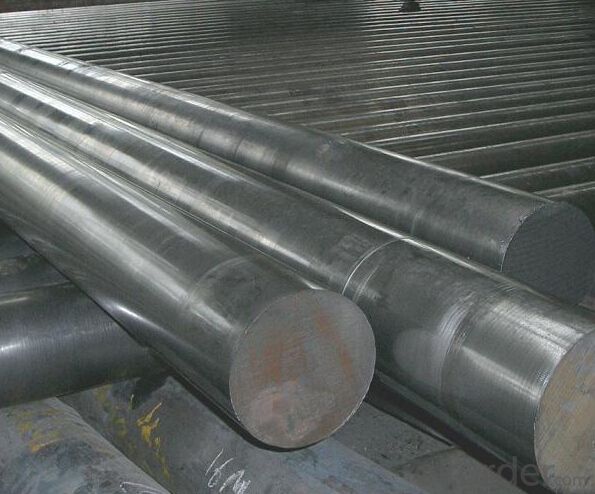
- Q: What is the cost difference between regular steel and special steel?
- The cost difference between regular steel and special steel can vary depending on several factors. Special steel is typically more expensive than regular steel due to its enhanced properties and specific applications. Regular steel, also known as carbon steel, is widely available and relatively affordable. It is primarily composed of iron and carbon, with trace amounts of other elements. Regular steel is suitable for various general-purpose applications, such as construction, manufacturing, and automotive industries. On the other hand, special steel refers to a wide range of alloyed steels that are specifically engineered to possess certain desirable characteristics, such as increased strength, improved corrosion resistance, heat resistance, or enhanced machinability. These special properties make them ideal for specialized applications in industries like aerospace, defense, oil and gas, and automotive manufacturing. The cost difference between regular steel and special steel can be significant due to the additional processing steps and the use of expensive alloying elements. Special steels require precise control over the composition and manufacturing process to achieve the desired properties. This entails additional costs associated with alloying elements, heat treatment, and specialized equipment. Moreover, the demand and availability of special steel can also impact its cost. Since special steel is produced in smaller quantities and caters to specific industries, it may have a higher price tag compared to regular steel, which is produced in larger volumes. In conclusion, the cost difference between regular steel and special steel can vary based on the specific type of special steel, the desired properties, and the market demand. Special steel tends to be more expensive than regular steel due to its enhanced properties and specialized manufacturing processes required.
- Q: What are the different surface treatment methods for special steel?
- Some of the different surface treatment methods for special steel include heat treatment, plating, coating, and nitriding. Heat treatment involves heating and cooling the steel to improve its hardness, strength, and ductility. Plating involves applying a thin layer of metal, such as zinc or chrome, to enhance corrosion resistance. Coating methods like painting or powder coating provide a protective layer and can improve aesthetics. Nitriding involves introducing nitrogen to the steel's surface to increase hardness and wear resistance.
- Q: What are the different joining methods used for special steel?
- The different joining methods used for special steel include welding, soldering, brazing, and mechanical fastening. Welding involves melting the base metal and adding a filler material to create a strong bond. Soldering and brazing use lower temperatures to join the steel using a filler material with a lower melting point. Mechanical fastening methods include bolts, nuts, screws, and rivets, which provide a secure connection without altering the base metal's properties.
- Q: How does special steel contribute to the machinability of products?
- Special steel contributes to the machinability of products by offering enhanced properties such as higher strength, improved wear resistance, and increased hardness. These qualities allow for easier cutting, shaping, and forming during the machining process. Additionally, special steel may contain alloying elements that improve its thermal conductivity and reduce the risk of deformation or cracking, leading to better overall machinability.
- Q: What are the properties of corrosion-resistant steel?
- Corrosion-resistant steel, also known as stainless steel, possesses several properties that make it highly resistant to corrosion. These properties include a high chromium content, which forms a protective oxide layer on the surface of the steel, preventing further corrosion. Additionally, it contains varying amounts of other elements such as nickel, molybdenum, and nitrogen, which further enhance its corrosion resistance. Stainless steel is also known for its durability, strength, and ability to withstand extreme temperatures and harsh environments. Overall, these properties make corrosion-resistant steel a reliable and long-lasting material for various applications in industries such as construction, automotive, and aerospace.
- Q: What are the different types of special steel?
- There are several types of special steel, including stainless steel, tool steel, alloy steel, and high-speed steel. Each type has unique properties and characteristics that make them suitable for specific applications. Stainless steel is corrosion-resistant and commonly used in kitchen utensils and construction materials. Tool steel is known for its hardness and used in cutting tools and dies. Alloy steel contains additional elements to enhance strength, toughness, and wear resistance, often used in automotive and construction industries. High-speed steel is designed to withstand high temperatures and used in cutting tools and drill bits.
- Q: How is case-hardening steel used in the manufacturing of gears?
- Case-hardening steel is used in the manufacturing of gears to increase their hardness and durability. This process involves adding a thin layer of hard and wear-resistant material on the surface of the gear, while maintaining a tougher and more flexible core. The case-hardened gears can withstand higher loads, resist wear and fatigue, and have a longer lifespan, making them ideal for demanding industrial applications.
- Q: What are the characteristics of high-speed steel?
- High-speed steel (HSS) is known for its exceptional durability and heat resistance. It has excellent hardness, toughness, and wear resistance, making it suitable for cutting tools and machining applications. HSS can withstand high temperatures without losing its hardness, allowing it to cut at high speeds without losing its sharpness. Additionally, it has good dimensional stability and can maintain its shape even under extreme conditions.
- Q: What are the different methods of hardening special steel?
- There are several different methods of hardening special steel, including heat treatment, quenching, tempering, and carburizing. Heat treatment involves heating the steel to a specific temperature and then cooling it rapidly to increase its hardness. Quenching involves rapidly cooling the heated steel in a liquid, such as oil or water, to achieve high hardness. Tempering is a process that follows quenching, where the steel is reheated to a lower temperature to reduce brittleness and increase toughness. Carburizing is a method where the steel is heated in a carbon-rich environment to increase its surface hardness by infusing carbon atoms into the outer layer. These methods can be used individually or in combination to achieve desired hardness levels in special steel.
- Q: What are the properties of copper alloys?
- Copper alloys possess several properties that make them highly desirable in various applications. They exhibit excellent electrical conductivity, thermal conductivity, and corrosion resistance. Copper alloys also showcase high strength, good ductility, and outstanding malleability, allowing them to be easily formed into different shapes and sizes. Additionally, these alloys demonstrate antimicrobial properties, making them suitable for use in healthcare settings. Overall, the properties of copper alloys make them a versatile and valuable material in numerous industries.
Send your message to us
Grade SAE 4340 Alloy Steel Price List Hot Rolled
- Loading Port:
- Tianjin
- Payment Terms:
- TT OR LC
- Min Order Qty:
- 3 m.t.
- Supply Capability:
- 10000 m.t./month
OKorder Service Pledge
OKorder Financial Service
Similar products
Hot products
Hot Searches
Related keywords
